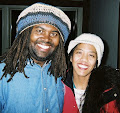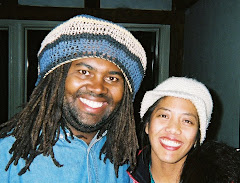Judge denies motions to dismiss charges against Baltimore officers, recuse Marilyn Mosby
By Kevin Rector and Justin Fenton of Baltimore Sun
In a victory for city State's Attorney Marilyn J. Mosby, a judge on Wednesday denied motions to dismiss charges against six Baltimore police officers charged in the arrest and death of Freddie Gray and to recuse Mosby's office from the case.
The hearing will resume at 2 p.m. when prosecutors and defense attorneys are expected to argue if the trial against the officers should be split up.
Defense attorneys argued that Mosby had gone too far in her remarks announcing charges against the officers, and that her office had numerous conflicts that required her office to be recused from the case.
Judge Barry Williams said he found some of Mosby's remarks "troubling," but said they did not prevent the officers from receiving a fair trial.
Regarding the alleged conflicts, Williams said the defense "didn't come close" to justifying a removal of the prosecutors' office.
Tuesday's arguments largely centered around the actions of Mosby and others in her office — and not the merit of the evidence in the case.
The dismissal motion focused on statements Mosby made while announcing the charges against the officers on May 1 in front of the Baltimore War Memorial. The arguments on the recusal motion focused on the role Mosby and prosecutors played in her office's independent investigation of Gray's death.
Gray, 25, suffered a severe spinal cord injury while in police custody on April 12 and died from his injuries a week later.
Andrew Graham, a defense attorney for Officer Caesar R. Goodson Jr., argued that when Mosby publicly announced the charges against the officers on May 1, she "adopted and encouraged the public's cry of 'no justice, no peace,'" and that her statements tainted the jury pool.
"She handled this as though it was some sort of pep rally," Graham told Williams.
Chief Deputy State's Attorney Michael Schatzow said Mosby's comments were taken directly from a statement of charges and that Williams should consider the words she spoke and not accept the defense's "gross distortion of what she said." He said any effort to calm the unrest throughout the city served a "legitimate" law enforcement purpose.
Catherine Flynn, a defense attorney for Officer Garrett E. Miller, argued for the recusal of Mosby and repeated arguments made in written motions that prosecutors in Mosby's office became witnesses in the case through their independent investigation of Gray's death.
She said the court should decide on the issue prior to allowing the case to go to trial. Schatzow argued that prosecutors had no conflicts of interest, noting prosecutors regularly perform investigative tasks.
"None of these conflicts represent real conflicts that require recusal of anyone, let alone the entire State's Attorney's Office," he said.
Williams, who at times cut off both the defense attorneys and prosecutors arguing their points, raised questions about statements made by Mosby made, including when she answered a reporter's question about whether the police officers had cooperated with the investigation.
"It's inappropriate, and you know it," Williams said to Schatzow about that exchange.
But in his ruling, Williams said it was not within his authority to decide whether she had broken the Maryland Lawyer's Rules of Professional Conduct, which guide attorney behavior. That was for the Attorney Grievance commission to decide, he said.
The judge also said defense claims of conflicts of interests by Mosby and other prosecutors "didn't come close" to meriting their removal from the case. Williams called the alleged conflict based on Mosby's husband, Nick Mosby, serving as a City Councilman in the district where Gray was arrested "troubling and condescending."
At the conclusion of his remarks, Williams told attorneys to stop seeking media sound bites and making unsupported claims.
A gathering of media and sign-toting protesters began to form outside the courthouse around 8 a.m. -- an anticipated scene surrounding a case that has garnered international attention following rioting and unrest in the weeks following Gray's death.
Protesters began moving downtown toward the Inner Harbor area of downtown Baltimore with arms linked. At least one person was arrested. Protesters then headed north to Baltimore's police headquarters.
Goodson, the driver of the police van in which Gray was injured, is charged with second-degree depraved-heart murder. Sgt. Alicia D. White, Lt. Brian W. Rice and Officer William G. Porter are charged with manslaughter. Officers Edward M. Nero and Garrett E. Miller face lesser charges, including second-degree assault.
The officers have all pleaded not guilty. They waived their rights to attend Wednesday's hearing. Gray's family was also not expected to attend, according to their attorney.
Following Gray's death, peaceful protests against police brutality were staged across the city. But on the day of Gray's funeral on April 27, students and other residents began clashing with police officers near Mondawmin Mall, and portions of the city quickly spiraled into rioting, looting and arson.
More than 100 police officers were injured and more than 400 businesses were damaged amid the rioting, which prompted Mayor Stephanie Rawlings-Blake to institute a curfew and Gov. Larry Hogan to deploy the National Guard. Mosby announced charges against the officers on May 1, and they were later indicted by a grand jury.
Police have been preparing for the hearing by meeting with business leaders and law enforcement counterparts from agencies across the Baltimore region. They also canceled leave for officers on Wednesday and on Sept. 10, when a second hearing is scheduled on the defense motion to have the case moved out of Baltimore because of the tremendous amount of exposure it has had in the city.
Subscribe to:
Post Comments (Atom)













No comments:
Post a Comment